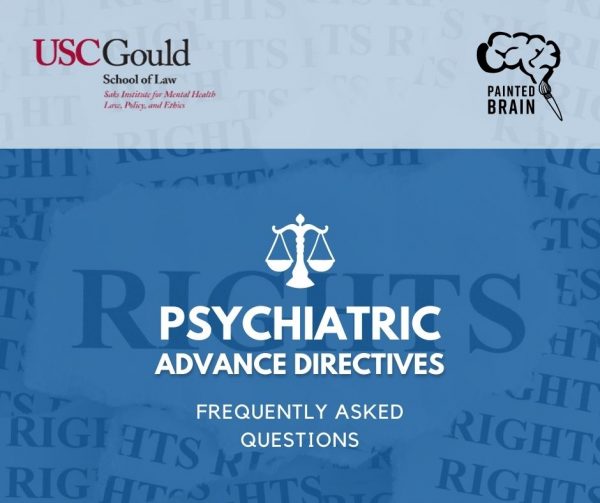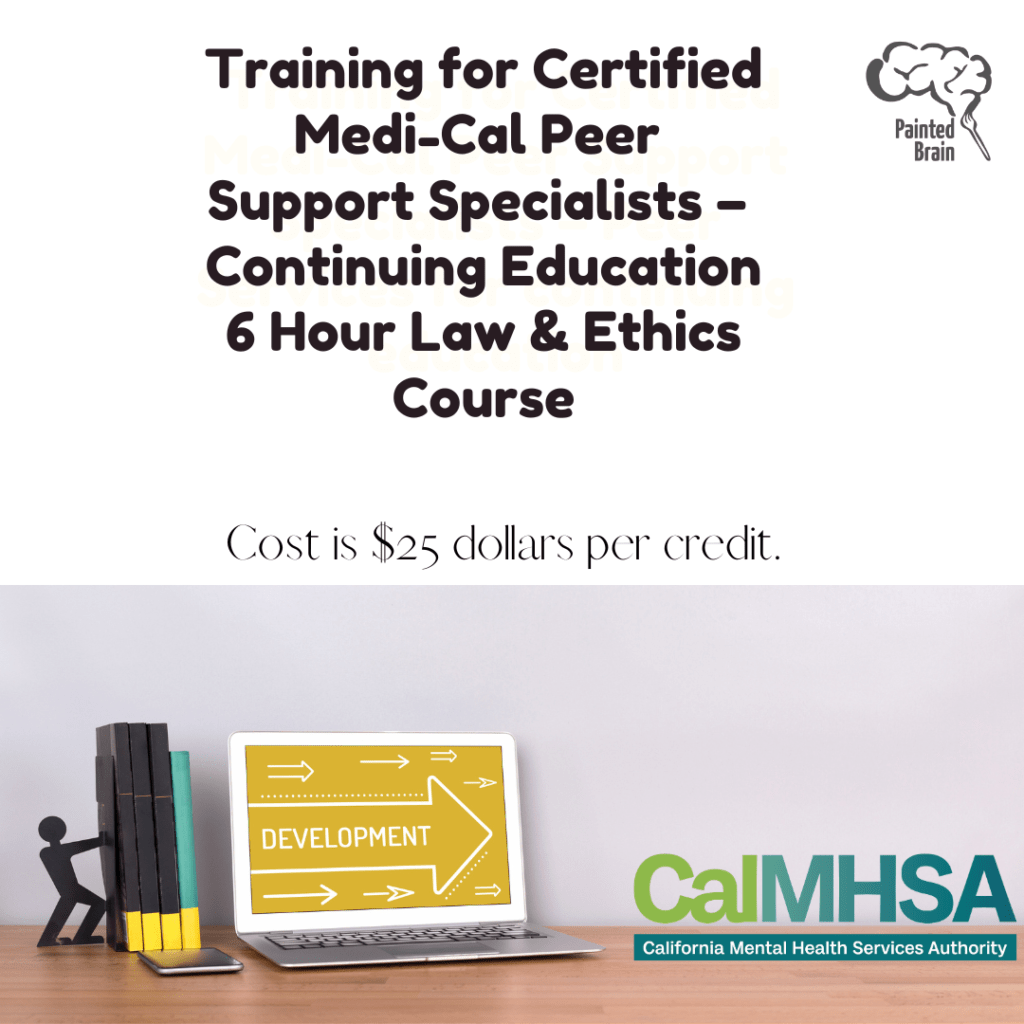Painted Brain is leading the initiative to pass legislation that would change the way people experience mental health treatment and care.
The legislation would enforce a legal rights document, Psychiatric Advance Directives—or PADs for short—that allows people with mental illnesses to choose the kind of care, treatment, medications, and services that an individual would want in the event of a psychiatric emergency, prior to the emergency.
For most people who have experienced hospitalization because of mental illness, it’s no secret that the mental health system in the United States is broken.
There’s a myriad of horror stories of people being touched without their permission, forced to take medication that makes their symptoms worse, being discharged too soon, or being held against their will for much longer periods of treatment than necessary.
While not all forced treatment is done with bad intentions, it can be traumatizing to have no control over your body in an already vulnerable position.
Seeking treatment is especially threatening to people of color with mental illnesses, who face an increased risk of police violence when having a psychological crisis.
[Related: Barriers to Mental Health Treatment in the Black Community]The same can be said for women and girls; as of 2017, The Psychiatric Crime Database and Disciplinary Actions reported almost a third of criminal convictions for patient sexual abuse crimes were committed by mental health professionals and practitioners.
People with severe mental illnesses are being taken advantage of, but what is being done to help?
Enter: Rayshell Chambers, Co-Founder, and Co-Director of Painted Brain.
Since March of 2021, Chambers and her team at Painted Brain have been working with California’s Mental Health Services Oversight and Accountability Committee (MHSOAC) to promote PADs to the general public and garner feedback on what people would like to be able to do with them.
“[PADs] is a legal document that allows for choice and treatment particularly during a crisis situation,”
Chambers said in an interview with Unapologetically Black Unicorns.
 Chambers, a mental health peer, said it was a combination of her experience of being hospitalized without a say in her treatment, and working at group homes that pushed her into doing mental health advocacy.
Chambers, a mental health peer, said it was a combination of her experience of being hospitalized without a say in her treatment, and working at group homes that pushed her into doing mental health advocacy.
Chambers said that she sees PADs as a necessity for people with mental illnesses because documents like PADs would have helped her during her time being hospitalized.
“I was in the hospital and they gave me the wrong medicine, and I freaked out,” Chambers said. “I don’t take psychotropic drugs, but I didn’t have it in a document. There was nothing. When I get passionate about PADs it’s because I’m like: this is real!”
Painted Brain has organized three listening sessions to get public feedback for how people with mental illnesses would like PADs to be implemented, and what limitations they’d like addressed.
Chambers and her team at painted Brain are working hard—showing up to make public comments, collaborating with other national platforms such as Substance Abuse and Mental Health Services (SAMHSA), the Copeland Center, and the California Association of Mental Health Per-Run Organizations (CAMHPRO)—to push California’s government to accept and enforce PADs as a standard procedure in mental healthcare.

Juneteenth event at Alta Loma park with Black Mental Health Task Force
On June 19th the first federally recognized Juneteenth holiday—Chambers and her Painted Brain team showed up at Loma Alta Park in Altadena, California, to raise awareness for Black mental health, mental illnesses, and wellbeing. It’s been a little over three months since their work with PADs began, and they’re already making waves in the world of mental health.

Juneteenth at Alta Loma park – mental health panel featuring Savannah Thomas and Maagic Collins.
Chambers and her team are working to make PADs enforceable on a state level, and eventually, build up to a national scale.
Please visit Painted Brain’s website for more information.
*This article is an Op-Ed authored by a Painted Brain peer.





